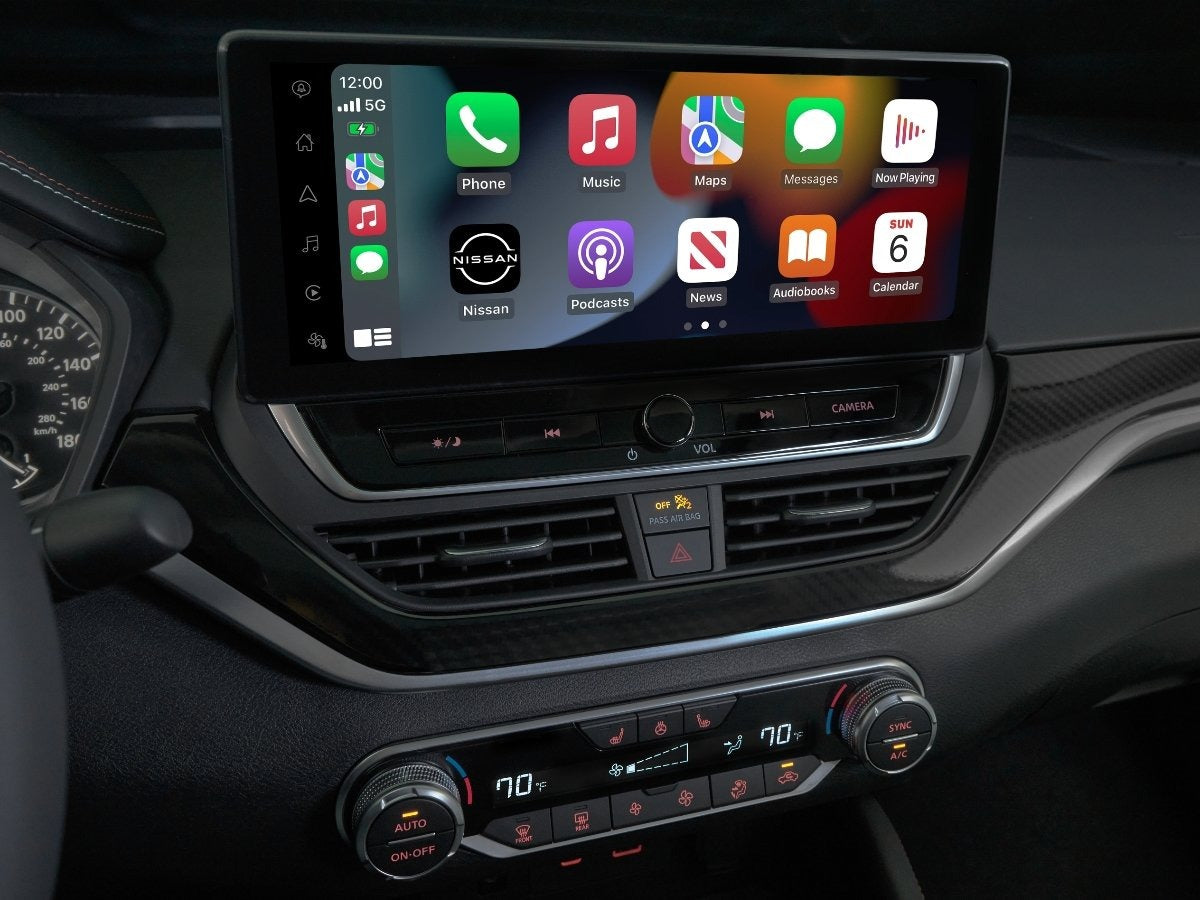Are CarPlay Screens Legal? Understanding the Regulations

Introduction
In an era where technology is seamlessly integrated into our daily lives, it's no surprise that our vehicles are becoming smarter and more connected. Apple CarPlay has revolutionized the driving experience by providing a safer and more convenient way to use iPhone features on the road. However, with this advancement comes a critical question: Are CarPlay screens legal? In this blog post, we will delve into the legality of CarPlay screens, exploring the regulations, benefits, and safety implications to provide you with a comprehensive understanding.
The Rise of In-Car Technology
The rise of in-car technology has transformed how we navigate, communicate, and entertain ourselves while driving. Apple CarPlay and Android Auto are at the forefront of this transformation, allowing drivers to access navigation, music, phone calls, and text messages through a user-friendly interface. However, as we embrace this technology, it's essential to consider the legal implications and ensure we are adhering to regulations that promote road safety.
Understanding CarPlay and Its Features
Apple CarPlay is designed to provide drivers with a safer and more intuitive way to interact with their iPhones while on the road. By mirroring the iPhone's interface on the car's infotainment screen, CarPlay allows drivers to use essential apps hands-free, minimizing distractions. Key features include:
Navigation
CarPlay supports navigation apps like Apple Maps, Google Maps, and Waze, offering real-time traffic updates and turn-by-turn directions.
Communication
With Siri integration, drivers can make phone calls, send and receive text messages, and access contacts using voice commands, keeping their hands on the wheel and eyes on the road.
Entertainment
CarPlay provides access to Apple Music, podcasts, and audiobooks through apps like Apple Music, Spotify, and Audible, ensuring an enjoyable driving experience.
Safety
CarPlay's interface is designed to be simple and intuitive, reducing the need for drivers to take their eyes off the road. Voice commands and steering wheel controls further enhance safety by allowing hands-free operation.
Are CarPlay Screens Legal?
The legality of CarPlay screens depends on various factors, including regional laws and the responsible use of technology by drivers. Here's a closer look at the legal considerations:
Federal and State Laws
In the United States, federal and state laws govern the use of electronic devices while driving. The Federal Motor Carrier Safety Administration (FMCSA) regulates commercial drivers, while state laws vary for personal vehicle drivers. Generally, laws prohibit activities that cause distractions, such as texting or using handheld devices while driving. However, hands-free systems like CarPlay are often considered legal as they aim to minimize distracted driving.
Global Regulations
Laws regarding the use of in-car screens vary globally. In the European Union, for instance, regulations focus on reducing driver distractions and promoting road safety. Similar to the U.S., hands-free systems like CarPlay are generally permitted as long as they do not compromise safety.
CarPlay’s Design and Legal Compliance
Apple designed CarPlay with safety in mind, ensuring compliance with regulations. The system prioritizes essential functions and minimizes distractions through voice commands and a simplified interface. Additionally, many car manufacturers have integrated steering wheel controls, allowing drivers to operate CarPlay without taking their hands off the wheel.
Case Studies: Legal Precedents
Examining legal precedents and case studies can provide insights into the acceptance of CarPlay screens. Instances where drivers have faced legal consequences for using in-car screens typically involve misuse, such as watching videos or engaging in activities unrelated to driving. CarPlay's design, focused on navigation, communication, and entertainment, aligns with legal standards promoting safe driving.
Using CarPlay Responsibly
While CarPlay screens are generally legal, responsible use is crucial to ensure safety and compliance with the law. Here are some tips for using CarPlay responsibly:
Familiarize Yourself with Local Laws
Understanding the laws in your region is essential. While CarPlay is designed to enhance safety, knowing specific regulations can help you avoid legal issues.
Use Voice Commands
Leverage Siri's voice commands to operate CarPlay without taking your hands off the wheel. Whether it's making a phone call, sending a text message, or navigating to a destination, voice commands can minimize distractions.
Focus on Essential Functions
Stick to essential functions while driving. Navigation, phone calls, and music control are the primary features designed for use on the road. Avoid engaging in activities that can divert your attention from driving.
Update Software Regularly
Ensure your iPhone and CarPlay software are up to date. Updates often include improvements and features designed to enhance safety and functionality.
Educate Passengers
If you have passengers in your vehicle, educate them on the importance of minimizing distractions. Encourage them to assist with non-essential tasks if needed.
Conclusion
Apple CarPlay screens offer a significant advancement in in-car technology, providing a safer and more convenient way to use iPhone features while driving. Generally, CarPlay screens are legal, thanks to their design focused on minimizing distractions and promoting road safety. However, understanding and adhering to local laws is crucial for responsible use. By leveraging voice commands, focusing on essential functions, and staying informed about regulations, you can enjoy the benefits of CarPlay while ensuring a safe driving experience.
For more tips, guides, and high-quality Apple CarPlay modules, visit TheCarPlayer. Enhance your driving experience with our easy-to-install CarPlay solutions for BMW, Audi, Lexus, Alfa Romeo, Jeep, Porsche, Land Rover, Range Rover, Mercedes, and Volkswagen.


Share:
Google Maps Adds a Key Missing Feature to Apple CarPlay
How to Stop Text, WhatsApp, and App Notifications in CarPlay